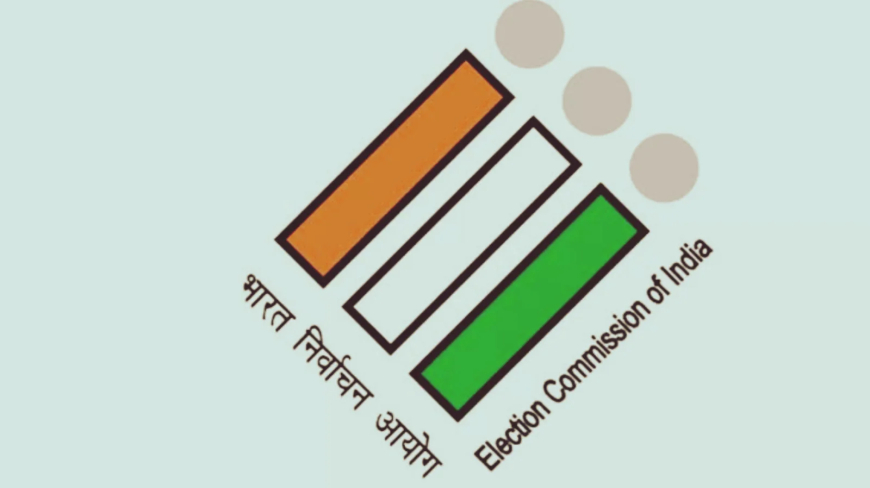Election Commission Reforms 2025: Strengthening Democracy or Cosmetic Overhaul?
Explore the sweeping Election Commission reforms of 2025. Are these changes making India's democratic foundation stronger or merely serving political interests? A deep dive into the new framework and its implications.

Election Commission Reforms 2025: Strengthening Democracy or Cosmetic Overhaul?
New Delhi, May 29, 2025 — As India emerges from the 2024 general elections, all eyes are on the sweeping reforms introduced within the Election Commission of India (ECI). Promising greater transparency, accountability, and efficiency, these changes aim to bolster public trust in the world’s largest democracy. But are we really seeing a stronger democratic framework—or are these reforms more performative than transformative?
Let’s unpack the major changes, assess their potential, and evaluate whether they truly empower India’s electoral system.
What Sparked the Push for Reforms?
India’s electoral ecosystem, though admired globally, has faced mounting scrutiny over recent years. Allegations of biased decision-making, opaque funding mechanisms, and politicization of election scheduling have created a sense of distrust, especially among the youth and first-time voters.
Calls for reforms grew louder after watchdogs like Association for Democratic Reforms (ADR) and Common Cause highlighted multiple flaws in how elections were conducted and supervised. A Supreme Court verdict in early 2023 further catalyzed changes, ruling that the appointment of Election Commissioners must follow a transparent selection process involving the judiciary.
Key Reforms in the 2025 Overhaul
The 2025 reforms are significant, targeting both institutional processes and operational mechanics. Here are the headline measures:
1. Independent Collegium for EC Appointments
A long-standing demand from civil society, the appointment of the Chief Election Commissioner (CEC) and Election Commissioners will now be made by a collegium comprising the Prime Minister, the Chief Justice of India, and the Leader of the Opposition.
This aligns with global best practices and brings India closer to democratic standards seen in nations like Canada and Australia.
Read full coverage by The Hindu: CEC Appointments See Major Overhaul
2. Real-Time Funding Transparency
All political donations exceeding ₹20,000 must now be declared within 72 hours on a public portal maintained by the ECI. Electoral bonds, though not fully scrapped, are now traceable through an RTI-compliant mechanism.
The Centre for Policy Research provides detailed insights into electoral funding reforms.
3. AI-Driven Voter Roll Management
With reports of duplicate and ghost voters still plaguing many constituencies, the ECI has partnered with NIC and IIT-Madras to deploy AI tools for deduplication and verification. The rollout is expected to clean up voter rolls in urban states by the 2026 state elections.
4. Time-Bound Complaint Redressal
For the first time, political parties and individuals can file digitally trackable election-related complaints, which the ECI is obligated to respond to within 15 working days.
This addresses a key demand from parties like AAP and CPI(M) who long argued that grievance redressal lacked structure and accountability.
Impact on Political Neutrality
One of the most pressing concerns around the ECI was its perceived political bias, particularly in delaying action on model code violations. The new framework empowers the ECI to initiate suo motu investigations and issue binding interim rulings on serious infractions.
Still, skeptics argue that unless internal culture and staffing norms are overhauled, neutrality remains a question mark.
Political analyst Meera Raghavan told Scroll.in:
“A structural fix is meaningful only when institutional courage backs it. Laws don’t work unless they’re applied fairly and without fear.”
Technology and the Voter Experience
Technology plays a central role in these reforms:
-
Blockchain-based Voter ID trials began in two constituencies in Karnataka and are projected to roll out nationwide by 2028.
-
Digital voter slips, AI-mapped polling booths, and biometric cross-verification are being tested to enhance both efficiency and security.
-
The revamped Voter Helpline App now offers real-time poll status updates, grievance filing, and geo-tagged directions to polling stations.
However, digital accessibility remains an issue in rural and under-resourced areas.
Critics and Concerns: Not All Applauding
While many welcome the reforms, activists and watchdogs remain cautiously optimistic. Some common criticisms include:
-
Absence of full electoral bond scrapping: Even with partial transparency, the anonymity loophole persists.
-
Lack of clarity on political advertisements regulation, especially on digital platforms like WhatsApp and YouTube.
-
Underrepresentation of women and minorities in key EC advisory bodies despite reform mandates.
Transparency International India warned that institutional independence can still be undermined by executive overreach if the public watchdog mechanisms aren’t strengthened.
What This Means for Indian Democracy
These reforms reflect a genuine shift toward democratic maturity, particularly in how elections are managed and monitored. If implemented effectively, they can re-instill faith among voters, especially young Indians who increasingly demand ethical, transparent governance.
Yet the success of these measures will depend on consistent implementation, legal accountability, and civil society engagement. Democratic reform is not a one-time exercise—it’s a culture that must be reinforced continuously.
Final Thoughts: Reform Is a Beginning, Not the Destination
The Election Commission Reforms of 2025 mark an ambitious chapter in India’s democratic journey. They bring procedural transparency, digital innovation, and institutional checks into focus. But democracy isn’t strengthened by reform alone; it’s reinforced by vigilant citizens, fearless institutions, and accountable leadership.
As we approach upcoming state elections and gear up for 2029, the onus is now on both the ECI and the electorate to ensure that these changes don’t remain just words on paper—but become the backbone of a truly representative system.

















































